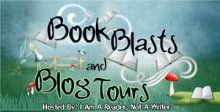Buy Now @ Amazon
Genre – Historical Fiction
Rating – PG13
More details about the book
Connect with RW Peake on Facebook & Twitter
What was the hardest part about writing this book? Maintaining the authenticity, knowing that my audience is very educated about the time period and will be quick to spot things like misplaced tactics or weapons that wouldn’t have shown up in the Republican period. Also, while there’s a lot of historical record for the Roman army of the period about a century before, and even more for the Imperial period immediately following this, there’s a real dearth of sources for the Late Republican period. This is a blade that cuts both ways; as an author it gives me a bit of latitude, but as a historian who wanted to make this as close to nonfiction as one could get, it meant that those things that I did invent, I had to be able to support why I drew these conclusions.
Did you learn anything from writing this book and what was it? Besides wearing socks with sandals?
How do you promote this book? Every way I can think of. I know there’s a lot of debate in the indie community, for example, about the merits of social media, and I’ve gotten some very…spirited resistance to the idea. All I can say is that for the first book I used Facebook to great effect, helped a great deal by that “secret weapon” of my cover.
I also do things like this, with Orangeberry, and I’ve tried a few other things. Being brutally honest, it’s a learning process and there have been some dry holes along the way. But probably the best promotion is through the readers themselves. In a really short period of time (at least so I’m told), for an unknown, self-published author, in the 8 months that the first book has been out, I’ve garnered more than 100 reviews, and 95 of them have been 4 or 5 stars. The word of mouth has been outstanding, and now that I’m sitting at more than 10,000 copies sold for the first title, and several weeks in the #1 spot in the Ancient Rome genre, I would have to say that the word of mouth promotion has been the most effective.
Will you write others in this same genre? Ah, the 64K question. For some time I’d been wavering about this. I hate it when people use the “But I’m an artist” crap, and yet I found myself saying, “But I want to do more than just write about Rome. I’m an ARTIST.” Thanks to a very loyal, and vocal, group of fans, I’ve seen the error of my ways. Yes, the “Marching With Caesar” will continue, and I’ve already begun creating a “genealogy” that has my character Titus Pullus as the founder, where characters from that family tree will be Marching With Caesar throughout Rome’s history. After the release of the fourth and final book of the Titus Pullus series, in May of 2013, I’ll be announcing what comes next.
Is there a message in your novel that you want readers to grasp? Although my first goal is to entertain, the goal of informing is a very, very close second. I wouldn’t be true to my historian roots if I didn’t. But the overriding message I want to impart to readers is to connect them, through Titus and his friends, to the young men and women who are even as I write this, standing in harm’s way somewhere in the world. I don’t get political in my book, outside of the actual politics that took place in the story of Julius Caesar, so I don’t pass judgment on any of the actions of anyone in the book, unless it’s through the eyes of Titus. But Titus, Vibius and all their friends are alive today, sitting in a prefab bunker in Afghanistan, talking about the same things, sharing the same worries, and laughing at the same stuff as their counterparts 2,000 years ago. More than anything else, I want readers to make that connection. And from the reviews, I’ve been successful at that, which makes me very happy.
Have you included a lot of your life experiences, even friends, in the plot? As I say in my author’s bio, I’ve been the pointy tip of the spear of my nation’s policy, so there is inevitably some commonalities between my story and that of Titus and his friends.
How important do you think villains are in a story? Never given it much thought, to be honest. I think because I don’t necessarily buy into the idea that anyone is pure good or pure evil, so that even the ‘villians’ in my story, like Spurius Didius, will show himself to have redeeming qualities. While my hero Titus does some really dickish stuff to others in his climb to the top.
What are your goals as a writer? Win a Nobel Prize for Literature, become mentioned as one of the great American writers, and have my historical fiction books on Rome become required reading in colleges around the country. You know, nothing big.










No comments:
Post a Comment